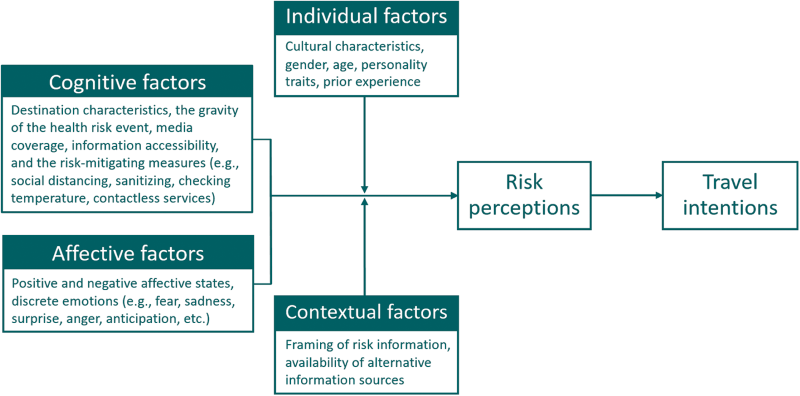The COVID-19 pandemic has drastically changed the landscape of global tourism, with health risk perceptions becoming a critical factor in travel decisions. A recent study published in the Tourism Review explores the antecedents and outcomes of these perceptions, offering valuable insights into how travelers’ fears and concerns shape their behavior. The study highlights that understanding these perceptions is crucial for the tourism industry to rebuild trust and encourage safe travel practices.
Key Factors Influencing Health Risk Perceptions
The study identifies four main factors that influence health risk perceptions in tourism: cognitive, affective, individual, and contextual factors. Cognitive factors involve the knowledge and information travelers possess about COVID-19 and its risks. Affective factors relate to the emotions and feelings of anxiety or fear that the pandemic has triggered. Individual factors include personal characteristics like health conditions or risk tolerance, while contextual factors encompass the broader social and environmental context, such as media coverage and government responses.

Impact on Travel Intentions and Behavior
These health risk perceptions have significant implications for travel intentions and behavior. The study found that heightened perceptions of risk often lead to changes in travel plans, with many tourists opting for domestic travel or destinations perceived as safer. Additionally, the preference for contactless services and hygiene standards has increased, reshaping the demand for tourism products and services. The study suggests that destinations and businesses that effectively communicate safety measures can mitigate these concerns and attract more tourists.
Theoretical Contributions and Practical Implications
The research contributes to the theoretical understanding of health risk perceptions by proposing a conceptual model that links the identified factors to tourists’ decision-making processes. This model serves as a framework for future studies to explore how health risks are perceived in different contexts and among diverse traveler groups. Practically, the findings emphasize the importance of transparent communication and the implementation of health and safety protocols in restoring traveler confidence.
Looking Ahead: Navigating the Post-Pandemic Tourism Landscape
As the tourism industry navigates the post-pandemic landscape, the insights from this study offer guidance for stakeholders aiming to revive travel while ensuring safety. By addressing the factors that shape health risk perceptions, tourism professionals can design strategies that resonate with the evolving needs and concerns of travelers. This approach not only supports the recovery of the industry but also fosters a more resilient and sustainable tourism future.
Reference:
Godovykh, M., Pizam, A., & Bahja, F. (2021). Antecedents and outcomes of health risk perceptions in tourism, following the COVID-19 pandemic. Tourism Review, 76(4), 737-748. https://doi.org/10.1108/TR-06-2020-0257
You can access the full paper here.











